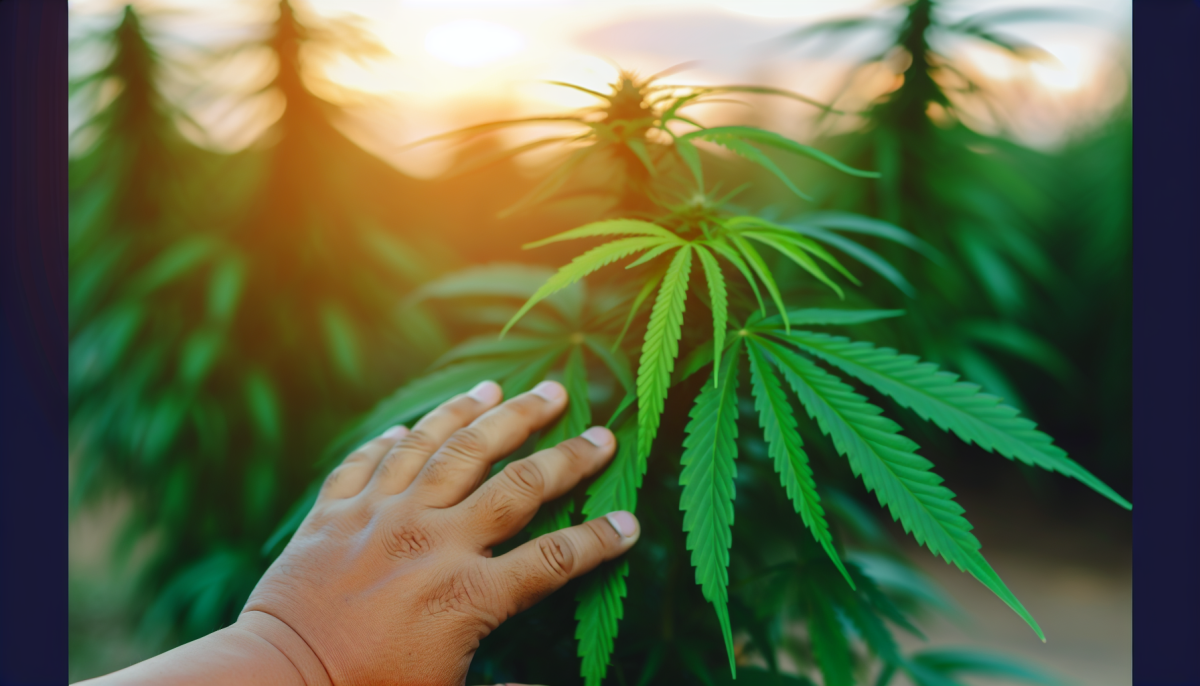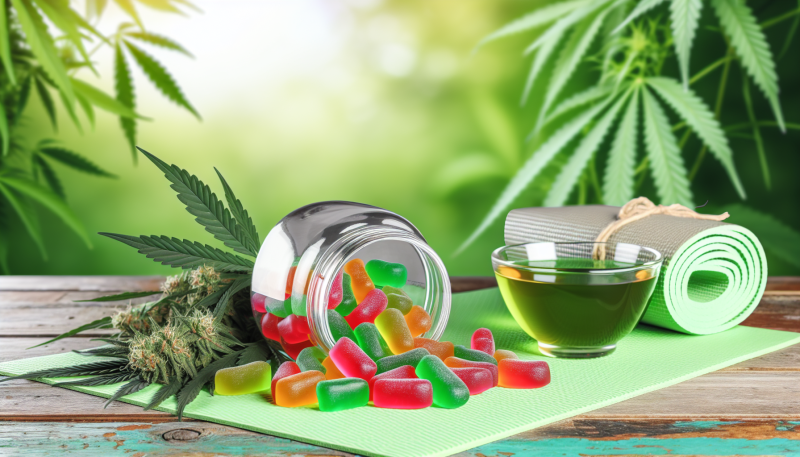In recent years, CBD (short for cannabidiol) has gained significant popularity as a natural supplement with numerous potential benefits. Understanding the basics of CBD is essential to make informed decisions about its use. So, let's dive into what CBD is, why it has become so popular, and how it can be used.
What is CBD?
CBD is one of the many chemical compounds found in the cannabis plant. Unlike its counterpart, THC (tetrahydrocannabinol), CBD does not produce the psychoactive effects commonly associated with marijuana. This means CBD consumption won't make you feel "high." CBD is usually derived from hemp, a variety of cannabis plant with low THC levels.
Why has CBD gained popularity?
The surge in CBD's popularity can be attributed to its potential therapeutic properties. While research is still ongoing, CBD has shown promising results in managing various conditions such as chronic pain, anxiety, inflammation, and insomnia. Additionally, CBD is seen as a natural alternative to prescription medications, appealing to those seeking more holistic approaches to their health and well-being.
How can CBD be used?
CBD products come in various forms, including oils, capsules, edibles, topicals, and even vaping liquids. The method of consumption depends on personal preferences and the desired effects. CBD oil, for example, can be taken sublingually (under the tongue), providing faster absorption into the bloodstream. Topicals, on the other hand, are applied directly to the skin and are commonly used for localized pain relief. It's important to remember that the potency and effectiveness of CBD products can vary, so consulting with a healthcare professional before use is recommended.
The Science behind CBD: Unraveling Its Potential
When it comes to understanding CBD (Cannabidiol), a non-psychoactive compound derived from the cannabis plant, the science behind its potential benefits is intriguing. CBD has gained significant attention in recent years for its reported therapeutic properties, but how exactly does it work? To unravel its potential, we need to delve into the fascinating science.
One of the key mechanisms through which CBD exerts its effects is by interacting with the endocannabinoid system (ECS) in our bodies. The ECS plays a crucial role in maintaining homeostasis, regulating various physiological processes such as mood, sleep, appetite, and immune response. CBD interacts with the ECS by influencing receptors known as CB1 and CB2, which are found throughout the body, including the brain. This interaction may have a balancing effect, potentially explaining the wide range of reported benefits.
Furthermore, CBD has shown promise in modulating the activity of neurotransmitters like serotonin and dopamine. Serotonin is a neurotransmitter associated with mood regulation, while dopamine is involved in reward and pleasure sensations. By influencing these neurotransmitters, CBD may contribute to a sense of well-being and a reduction in anxiety or depression symptoms.
CBD Benefits Unveiled: From Calming Anxiety to Easing Pain
As CBD continues to gain popularity, many people are curious about its potential therapeutic benefits. Cannabidiol, or CBD, is a compound derived from the hemp plant that is known to interact with our body's endocannabinoid system. While scientific research is still ongoing, anecdotal evidence suggests several potential benefits of CBD.
1. Anxiety Relief: One of the most well-known benefits of CBD is its potential to alleviate anxiety. Many individuals have reported feeling a sense of calmness and relaxation after consuming CBD. Studies have shown that CBD may help regulate the body's stress response and reduce anxiety symptoms.
2. Pain Management: CBD is also believed to have pain-relieving properties. It interacts with receptors in our brain and immune system to reduce inflammation and alleviate pain. Many individuals suffering from chronic pain conditions, such as arthritis or migraines, have found relief by incorporating CBD into their wellness routine.
3. Improved Sleep: Another potential benefit of CBD is its ability to improve sleep quality. Many people struggle with insomnia or other sleep-related issues, which can have a significant impact on their overall well-being. CBD has shown promise in promoting relaxation and reducing insomnia symptoms, aiding in achieving a more restful night's sleep.
While the potential benefits of CBD are exciting, it is essential to note that more research is needed to fully understand its effectiveness and proper dosages. Additionally, individuals considering CBD should consult with a healthcare professional to ensure it is suitable for their specific needs.
Navigating CBD Products: Understanding Dosage, Forms, and Quality
When navigating the world of CBD products, it's important to have a good understanding of dosage, forms, and quality to make informed choices. CBD, or cannabidiol, is a non-psychoactive compound found in cannabis plants known for its potential therapeutic benefits. However, with various products available in the market, it can be overwhelming to decide which one is right for you.
Dosage plays a crucial role in CBD effectiveness. It's important to start with a low dose and gradually increase until you find the optimal dose for your needs. Factors like body weight, metabolism, and the condition being treated can all influence the appropriate dosage. It is recommended to consult with a healthcare professional to determine the right dosage for your specific situation.
When it comes to forms, CBD products come in a variety of options, each with its own benefits. CBD oil tinctures are one popular choice as they can be easily taken sublingually and have a fast-acting effect. CBD capsules offer a convenient and discreet way to consume a specific dose. Topical creams and lotions are ideal for localized relief, while edibles and beverages provide a tasty option for consuming CBD.
Lastly, ensuring the quality of CBD products is of utmost importance. Look for products that have been third-party tested for purity and potency. This ensures that what is stated on the label is accurate and that the product is free from harmful contaminants. Additionally, consider checking if the CBD is derived from organically grown hemp and if the manufacturing process follows Good Manufacturing Practices (GMP).



